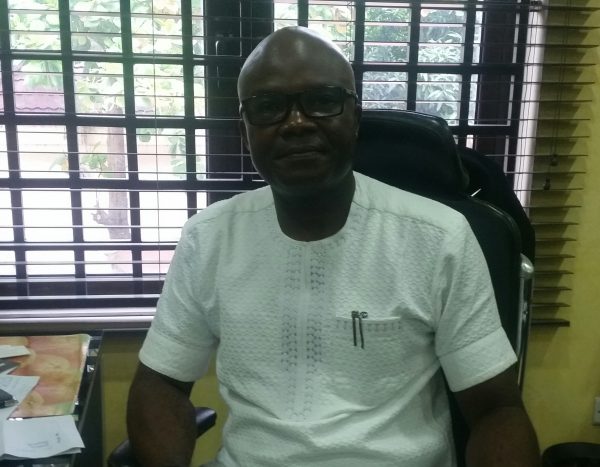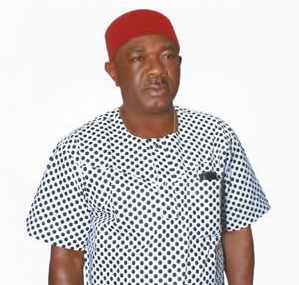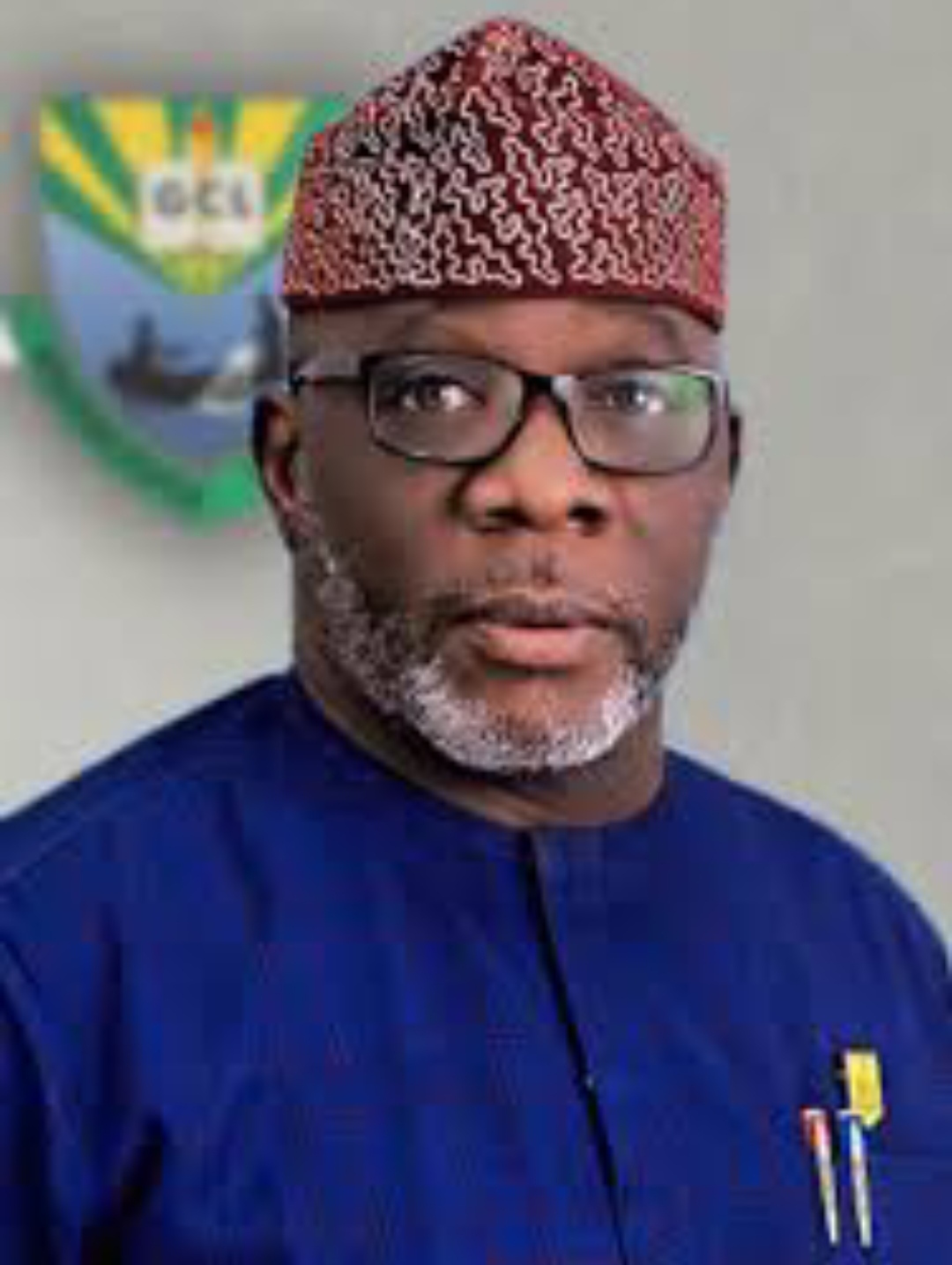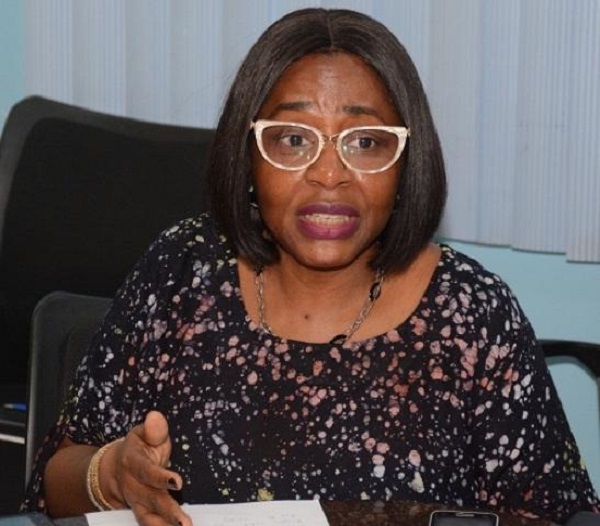Why Navy’s Interest In Commercial Shipping Is A Threat – Capt. Taiwo

By Kenneth Jukpor
Capt. Taiwo Franklin Akinpelumi is the Lagos Coordinator – Nigerian Indigenous Ship-owners Association (NISA). He spoke to MMS Plus exclusively at the recent Maritime Industry Forecast organized by the Nigerian Maritime Administration and Safety Agency (NIMASA), revealing the challenges facing seafarers and ship-owners in the country while he gave an assessment of the maritime sector and disclosed his expectations for the industry in 2018.
Excerpts:
How relevant is this Maritime Industry Forecast to transforming Nigeria’s maritime sector?
This is only a forecast; it can only tell the state to be. It is an attempt to showcase the predictions and potentials of the maritime sector for 2018 and 2019. It is a step in the right direction but all the indices have to be put into consideration to enable us see what needs to be done, new initiatives that have to be introduced, areas that need rejigging, etc. However, it is the political will that would lead these forecasts to become tools to actually restructure and develop the maritime sector.
This shouldn’t be an avenue where we gather annually to talk but an opportunity to steer the industry in the right direction with the indices and predictions revealed.
One of the achievements highlighted in the agency’s documentary on its operations in the last two years under the leadership of Dr. Dakuku Peterside, was the training and provision of seatime for Cadets. Looking at the percentage of Cadets that have got seatime, how would you appraise this development?
Only about 150 Cadets are presently obtaining seatime experience across several countries of the world but we have over 2,500 Cadets trained by NIMASA. Well, it is only in this part of the world that a regulatory agency starts singing praises. We have barely started to make progress in the aspect of training seafarers so why should we start singing praises. This is a situation where there are over 2,500 Cadets sent out for training and there are no opportunities for them to get seatime, but 150 of them which is about 6% of them get seatime, why should we start singing praises?
NISA has met with the NIMASA management several times and advised them to take a critical look at the way the Nigerian Seafarers Development Programme (NSDP) is designed because at NISA, we feel the scenario is like placing the cart before the horse. A healthy maritime industry can easily develop human capacity. In such a healthy environment shipping companies can be mandated by the regulatory agency to train these cadets because there would be jobs for them to fall back on.
However, a situation where we keep training Cadets when there are no companies for them to get seatime isn’t ideal. We have suggested to NIMASA that the maritime sector needs indigenous shipping to thrive. We ought to start from the basis. There has to be cargo and after the availability of cargo is guaranteed, NIMASA can begin to mandate the training of certain number of Cadets by ship owners. When a Cadet is trained by a shipping company, it is most likely that there would be jobs waiting for the Cadet after he obtains his seatime experience. A situation where we are looking at the benefits of foreign exchange earnings to train Cadets; and we expect foreign shipping companies to absorb them, even for seatime experience cannot work.
On security issues, I learnt it costs $30,000 to place Navy personnel onboard a vessel going from Lagos to Port Harcourt. What’s your take on this?
We are aware that Nigerian waters are not secured. We know about the situation of armed robbery at sea and piracy but we have to put things the right way. A situation where the Nigerian Navy has become so bent on looking out for ways to make money from the maritime space is unfortunate.
You can also be assured that this high cost of securing vessels to such locations would translate to inflation in products and services in those parts of the country. Something urgent has to be done about this because the agenda of the Navy to make money from securing vessels isn’t a good thing for the nation at all.
$30,000 amounts to over N10million which is outrageous. Should NIMASA, Navy and other stakeholders reach an agreement to have an affordable sum as charge for securing vessels?
Are you saying that this amount should be legitimized? This would be subject to that agreement between NIMASA, Navy and other stakeholders; but would this be imbedded in the cost of doing business? If it is embedded in the cost of business, it would definitely lead to increase in the cost of such products or services. I think the Navy is causing all these problems in maritime business intentionally to enable them make money from the system.
Consider a situation where you route legitimate cargo to somewhere around the breakwaters here in Nigeria waiting to discharge and someone at the base would tell you that you have to pay certain amount per litre before you would be given approval.
There are several things the government has to look at concerning the Navy’s involvement in commercial shipping. Nigerian Navy’s involvement in commercial shipping has to be well regulated such that the Navy’s involvement is minimal. The Navy should provide security for the coastal areas such that the threat to commercial shipping is eliminated but the Navy shouldn’t become a threat to commercial shipping. It is around $30,000 today and if nothing is done to address this situation it could easily be double the amount in the near future.
As a veteran seafarer, I would like you to highlight some of the challenges with seafaring in Nigeria at the moment and possibly provide solutions to these problems?
The problems affecting seafarers are not unconnected to the major problems in the nation’s shipping industry. How many indigenous shipping companies do we have in Nigeria that are doing well? How many seafarers have jobs? The decay in the entire shipping sector in the nation reflects on the Nigerian seafarers.
Seafarers have found themselves in a horrible condition because there are no ships. The local capacity isn’t growing so there would be no room for seafarers to practice. This is the reality that the Nigerian seafarer is facing. What we witnessed here at the NIMASA forecast is merely a prediction, even the documentary doesn’t tell the whole story because when you compare the situation of seafarers in previous years to what is happening now, you find that the situation is deteriorating.
What we came for here is a step in the right direction like I said earlier, but there is need to have the political will. Government also has to appreciate the enormous resources it can realize through shipping because at the moment the government doesn’t seem to have realized the potentials in the sector. This realization would enable the nation practice shipping the right way.
One of the initial things to achieve would be to develop strategies and policies that allow indigenous capacity to grow. Either rustbuckets or efficient ships; if there are cargoes available, someone who is in business would have money to maintain his vessel and ensure the rustbucket meets global best standards. He is also in a better position to generate more revenue to acquire new vessels.
There should be some level of protectionist arrangement by the Federal Government, for instance, to say that lighterage operations be left exclusively for indigenous operators. All the foreign vessel owners doing such business on the Nigerian waters would be forced to give their vessels to Nigerians either via charter arrangements or long term. So, this would empower the indigenous operators to grow. Until the government is able protect and grow the local industry, I am afraid that nothing will come out of our frequent meetings and pronouncements in the sector.
The Nigerian Navy has moved to get 1% of NIMASA’s fund and the bill has passed the House of Representatives despite massive kick against it by stakeholders. What’s your position on this bill?
Nigerian Navy is trying to take over NIMASA’s statutory function with respect to security as it relates to commercial shipping, but this isn’t the Navy’s job. Navy is only needed when certain ships resist arrest but NIMASA has to appreciate that maritime security as it affects commercial shipping is its responsibility.
All over the world the coast guards of nations are separate from the Navy and there isn’t a mix-up about this.
The Navy has its statutory role to play as provided by the Armed Forces Act and if they are short of funds they know where to go to. They can approach the Federal Government with salient reasons why their budget should be increased but to extort the public and devise systems to get 1% of NIMASA revenue isn’t appropriate.
The first quarter of 2018 is gradually coming to an end, what is the most important thing you want the nation’s shipping sector to achieve this year?
I am hoping that the parliament speeds up the process of establishing the Maritime Development bank so that we could have that done this year. This would be a step in the right direction even as the monies in the Cabotage Vessel Finance Fund (CVFF) would be moved to the bank. The challenges faced by ship-owners in obtaining loans from commercial banks and difficulty in accessing CVFF would be eliminated as people can have easy access to funds to sustain their business at considerable interest rates.
With this development the industry is bound to grow and ship-owners can be mandated to train seafarers. This would translate to a healthy 2018 for the shipping industry in Nigeria.
Copyright MMS Plus.
All rights reserved. This material, and other digital content on this website, may not be reproduced, published, broadcast, rewritten or redistributed in whole or in part without prior express written permission from KINGS COMMUNICATIONS LIMITED.







